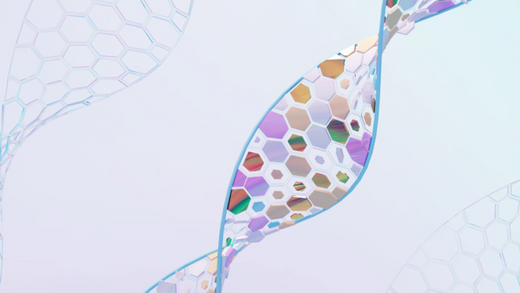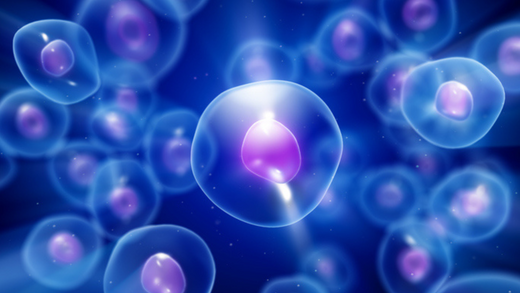Key Takeaways:
- Lifestyle choices like diet, exercise, and stress management can directly influence the health of your DNA and promote longevity.
- Protecting your DNA from damage through antioxidants, quality sleep, and stress reduction helps slow ageing at a cellular level.
- You have the power to support your genetic health with simple daily habits that enhance your well-being and vitality.
Did you know that every cell in your body carries approximately two metres of DNA? This incredible molecule acts as the blueprint of life, coding everything from your eye colour to how your body repairs itself.
Protecting this delicate structure from damage is crucial for healthy ageing and maintaining vitality well into later years. By adopting simple, evidence-based habits, you can fortify your DNA, promote cellular health, and keep the effects of ageing at bay.
What Causes DNA Damage and How It Impacts Ageing
DNA damage occurs naturally every day due to environmental stressors, free radicals, and lifestyle factors. Ultraviolet (UV) radiation, pollution, and even normal metabolic processes produce reactive oxygen species (ROS), which can harm the DNA molecule. This damage, if unrepaired, leads to mutations, cellular dysfunction, and the hallmarks of ageing, including chronic disease (R).
Your body has a built-in repair system, but its efficiency declines with age. Ensuring your lifestyle supports DNA repair mechanisms is vital for longevity and overall health.

The Role of Antioxidants in Protecting DNA
What if your diet could act as a shield for your DNA? Antioxidants neutralise harmful free radicals that cause oxidative stress, one of the biggest threats to your genetic health. Incorporating antioxidant-rich foods and supplements into your routine can help safeguard your cells and reduce the risk of age-related damage. Let’s dive into the best sources of these powerful compounds.
Best Antioxidant Sources
Antioxidants neutralise ROS and prevent oxidative stress, a major contributor to DNA damage. Foods rich in antioxidants, such as berries, leafy greens, and nuts, can reduce the risk of oxidative damage (R). Additionally, polyphenols in green tea and dark chocolate have been shown to enhance DNA repair enzymes.
Supplements for Antioxidant Boosts
When your diet isn’t enough, supplements like Vitamin C, Vitamin E, and coenzyme Q10 (CoQ10), NMN/NR and spermidine offer exciting potential for DNA preservation (R).
Lifestyle Habits That Strengthen Your DNA
Your daily habits play a crucial role in maintaining the health of your DNA. From exercising to boost protective enzymes to prioritising quality sleep for cellular repair, small, consistent actions can make a big difference. The key is integrating habits that promote longevity while keeping your genetic blueprint intact. Let’s explore how to strengthen your DNA through simple lifestyle changes.

Exercise and DNA Repair
Regular physical activity stimulates protective enzymes like telomerase, which helps maintain the protective ends of your DNA strands, called telomeres (R). Short telomeres are associated with accelerated ageing, so keeping active—especially with moderate aerobic exercises—supports your DNA health.
Sleep and Cellular Recovery
Sleep is when your body repairs itself at a cellular level. Deep sleep stages activate DNA repair mechanisms and improve mitochondrial function. Aim for 7-9 hours of quality sleep nightly to keep your DNA intact and promote healthy ageing (R).
Stress Management to Reduce DNA Damage
Feeling overwhelmed by stress? Chronic stress doesn’t just affect your mood—it can also damage your DNA. Elevated cortisol levels and prolonged stress are linked to shorter telomeres, accelerating cellular ageing. But there’s hope. By incorporating stress-reducing practices like mindfulness and meditation, you can protect your DNA and support overall well-being. Let’s uncover strategies to keep stress in check.
The Science Behind Stress and DNA
Chronic stress elevates cortisol levels, which can cause telomere shortening and impair DNA repair processes. Studies show that individuals with high perceived stress have significantly shorter telomeres than their less-stressed counterparts (R).
Simple Ways to Manage Stress
Practising mindfulness, engaging in hobbies, and spending time in nature are proven ways to reduce stress. Activities like yoga and meditation can help stabilise your stress response, protecting your DNA over time.
Dietary Interventions to Protect DNA
What’s on your plate has a direct impact on your DNA health. Nutrient-rich foods like omega-3 fatty acids and leafy greens not only nourish your body but also enhance your DNA’s natural repair mechanisms. Avoiding processed foods and opting for whole, nutrient-dense options can further support your genetic health. Let’s take a closer look at how your diet influences DNA integrity.

Omega-3 Fatty Acids and DNA Health
Omega-3s, found in fatty fish like salmon, have been shown to reduce inflammation and prevent DNA damage caused by chronic oxidative stress (R). Plant-based options include flaxseeds, chia seeds, and walnuts.
Limiting Processed Foods
Processed foods contain additives and chemicals that may trigger oxidative stress. Opt for whole, minimally processed foods to support your body’s natural repair systems.
Emerging Research in DNA Protection
The science of DNA protection is advancing rapidly, offering exciting possibilities for the future. Epigenetics shows us how lifestyle choices can alter gene expression, while breakthroughs in gene editing technologies like CRISPR may one day correct DNA damage. While these innovations are still evolving, they provide hope for reversing the effects of ageing at the genetic level. Let’s explore what the future holds for DNA health and longevity.
Epigenetic Interventions
Your lifestyle choices can influence gene expression through epigenetics, a field exploring how external factors switch genes on or off. Nutritional interventions, like consuming folate-rich foods, can positively affect gene methylation and support DNA integrity (R).
The Future of DNA Therapies
Innovations in CRISPR technology and gene editing are paving the way for therapies to correct DNA damage. While still in early stages, these advancements hold promise for reversing the effects of ageing at the genetic level.
Caring for your DNA is one of the most impactful ways to slow down ageing and support longevity. For more insights on how your environment influences your genes and ageing, check out our blog: How your environment impacts longevity.





